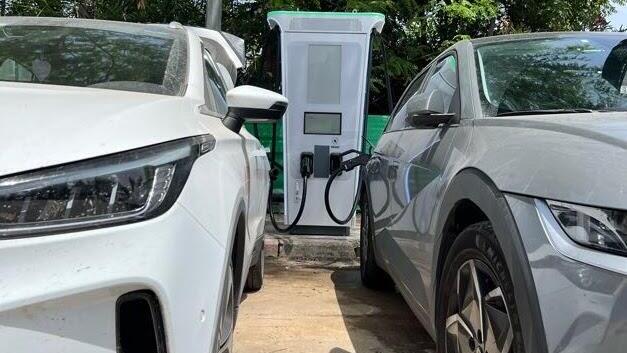Israeli construction engineering company Afcon Holdings is the first to introduce an ultra-fast charging station to Israel, with a capacity of 360 kilowatts per hour. This is more than twice the power of the fastest stations it has operated so far (175 kWh) and even faster than Tesla's Supercharger stations (250 kWh).
Other stories
The new station, located at the Dor Alon gas station in the Mesubim Junction in central Israel, was given the nickname "Unicorn." It is capable of charging a single vehicle at a rate of 360 kWh, and two simultaneously connected vehicles at a rate of 180 kWh each.
The cost of charging is the same as other fast charging stations by Afcon and amounts to 2.4 NIS (¢65) per kWh during the day or 2 NIS (¢54) at nighttime.
It should be noted that in Israel, there are only several cars on the market that support such high charging rates this requires high-voltage batteries (800V). These include the German cars Porsche Taycan and Audi e-tron GT, as well as Hyundai's models Ioniq 5 and Ioniq 6, the Kia EV6, and all of Genesis' electric models.
In the case of the Ioniq 6, for example, using this fast-charging station would allow an additional 100 kilometers of driving range within less than 5 minutes of charging and 350 kilometers within 15 minutes, while charging from 10% to 80% battery would take 18 minutes.
The ultra-fast station, manufactured by ABB from Switzerland, is equipped with reinforced power cables to ensure durability over time at a high charging rate. For the installation of the station, Israel Electric Corporation was required to provide a connection with a current of 500 amperes, twice the current commonly used in regular fast charging stations.


